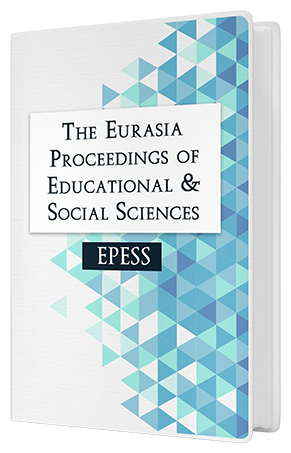Challenges of Teachers in the Process of Evaluation and Grading
Keywords:
Teachers, Evaluation, Grading, Inclusive classroomAbstract
One major challenge encountered by teachers is related to the process of grading. Objectivity and accurance in grading is aim of each educator, still there are lot of obstacles in achieving them. The aim of this study is to examine the concerns and dilemmas of educators towards grading and to point out some ways for overcoming them in an optimal way. Data gathering is based on content analyses of relevant literature, research reports, personal accounts and interviews with practitioners. Results show that there is a number of moral controversies related to the policy of grading. Teachers complain about grade devaluation, pressures for higher grades and situations when they are forced to make compromises that sometimes is not in line with their personal code of ethics. Emphasis of pupils on grades has negative influence on the process of learning.Introduction of inclusive practice in Macedonian schools bring aditional dilemmas how to assess children with special education needs who attend regular classes. These children study according to individually developed curriculla, but they receive the same certificates as others and there are not criterias for assessing their achievements. Teachers express need to get instructions and guidelines how to deal with this. Discipline issues, awarding and punishing are also among the common pedagogical and moral dilemmas of teachers.Beside legislative and normative acts that shoud be obeyed, and the code of ethics that should be announced and respected in each school, one efficient way for solving dilemmas in the classroom is group discussion and use of the experience of elder colleagues in previous cases. This can lead to optimal and professional solutions when faced with various challenges on the workplace. Making right decisions affect not only careers of teachers, but affect all the involved sides as well.Downloads
Published
Issue
Section
License
Copyright (c) 2019 The Eurasia Proceedings of Educational and Social Sciences

This work is licensed under a Creative Commons Attribution-NonCommercial-ShareAlike 4.0 International License.
The articles may be used for research, teaching, and private study purposes. Any substantial or systematic reproduction, redistribution, reselling, loan, sub-licensing, systematic supply, or distribution in any form to anyone is expressly forbidden. Authors alone are responsible for the contents of their articles. The journal owns the copyright of the articles. The publisher shall not be liable for any loss, actions, claims, proceedings, demand, or costs or damages whatsoever or howsoever caused arising directly or indirectly in connection with or arising out of the use of the research material. All authors are requested to disclose any actual or potential conflict of interest including any financial, personal or other relationships with other people or organizations regarding the submitted work.




